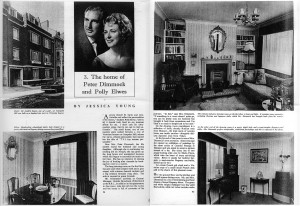The dot.life column on the BBC News website occasionally publishes interesting stories. The basis of this week’s story, No home for digital pictures, first appeared in the press in March, and it’s about the problems caused when technology changes too quickly.
Apparently, a visual record of life in the UK in 1986 called the Domesday Project has run into trouble because the medium on which the information is stored is becoming increasingly difficult to access, and the BBC thinks this issue will become particularly problematic for digital photography in the future.
“The problem is there will be no way to look at them [the photographs]. That’s because technology evolves so fast that any storage medium in use today is bound to become obsolete sooner or later. Finding the right equipment to retrieve digital images stored decades previously on obsolete media will become almost impossible.
In fact, it turns out that images stored electronically just 15 years ago are already becoming difficult to access. The Domesday Project, a multimedia archive of British life in 1986 designed as a digital counterpart to the original Domesday Book compiled by monks in 1086, was stored on laser discs.
The equipment needed to view the images on these discs is already very rare, yet the Domesday book, written on paper, is still accessible more than 1,000 years after it was produced.”
This comparison is interesting, but also rather misleading. Is the original Domesday book any less rare than the equipment that reads these laser discs? It may have survived a thousand years, but is the Domesday book really readily accessible today? Isn’t it kept under strict lock and key by the Public Record Office? Is it written in a language and script that most of us still understand?
Ironically, the best place for most of us to learn about the Domesday book these days is the Internet. In fact, the information contained in the Domesday book is now more accessible than ever before thanks to the very digital technology that is criticised in this story.
All technologies have strengths and weaknesses, and information technology is no exception. What this story really highlights is the need to ensure that important information is copied onto whatever media is most appropriate in the future. The difficulty is not posed by the technology, but by the need to define what’s important. I don’t know if future generations will consider a multimedia record of ordinary life in 1986 as important, but I’m pretty sure they’ll still consider the Domesday book worth saving.

 Here’s an example of the level of service now available from British Telecom that I mentioned in my previous
Here’s an example of the level of service now available from British Telecom that I mentioned in my previous 

